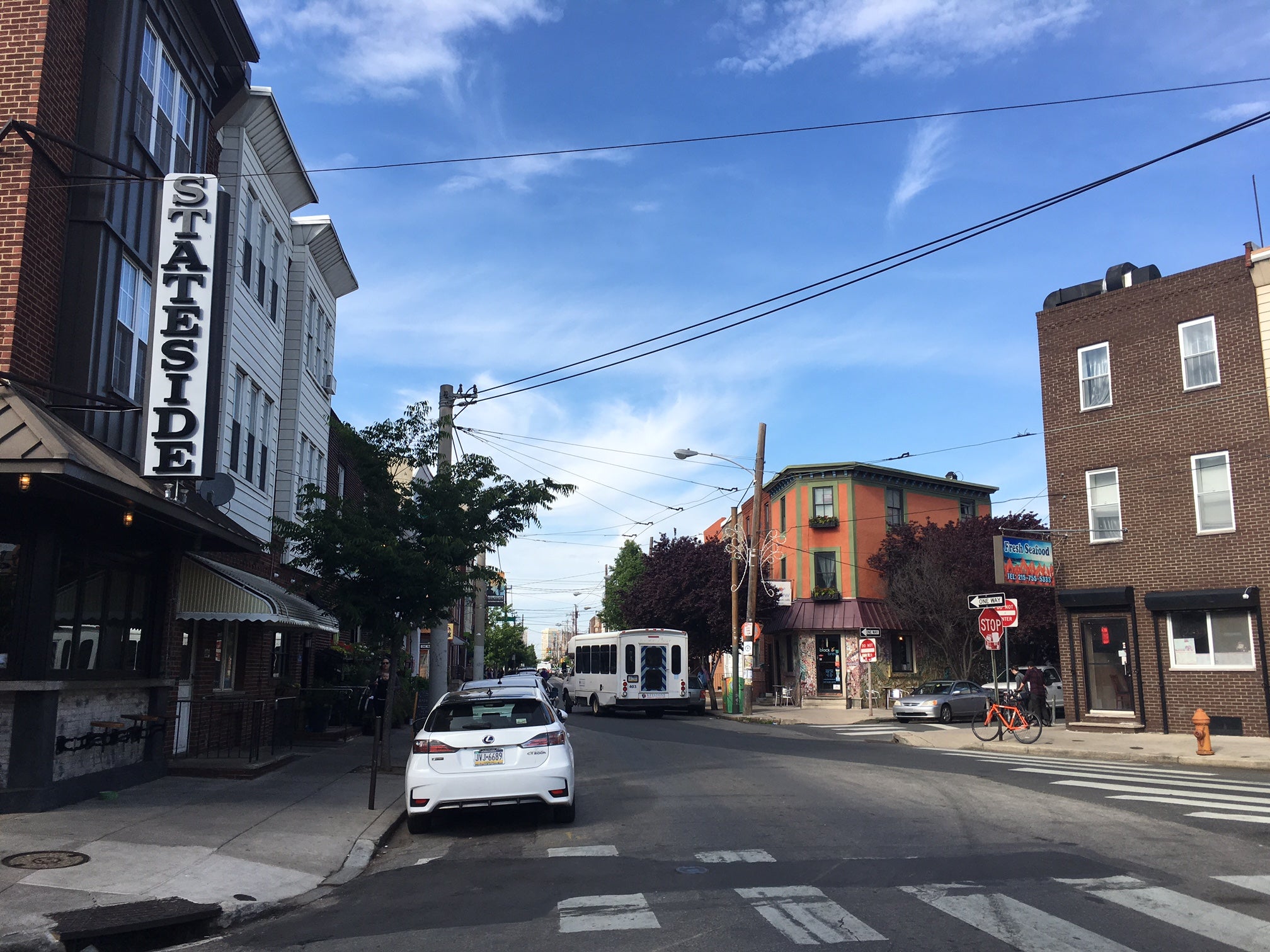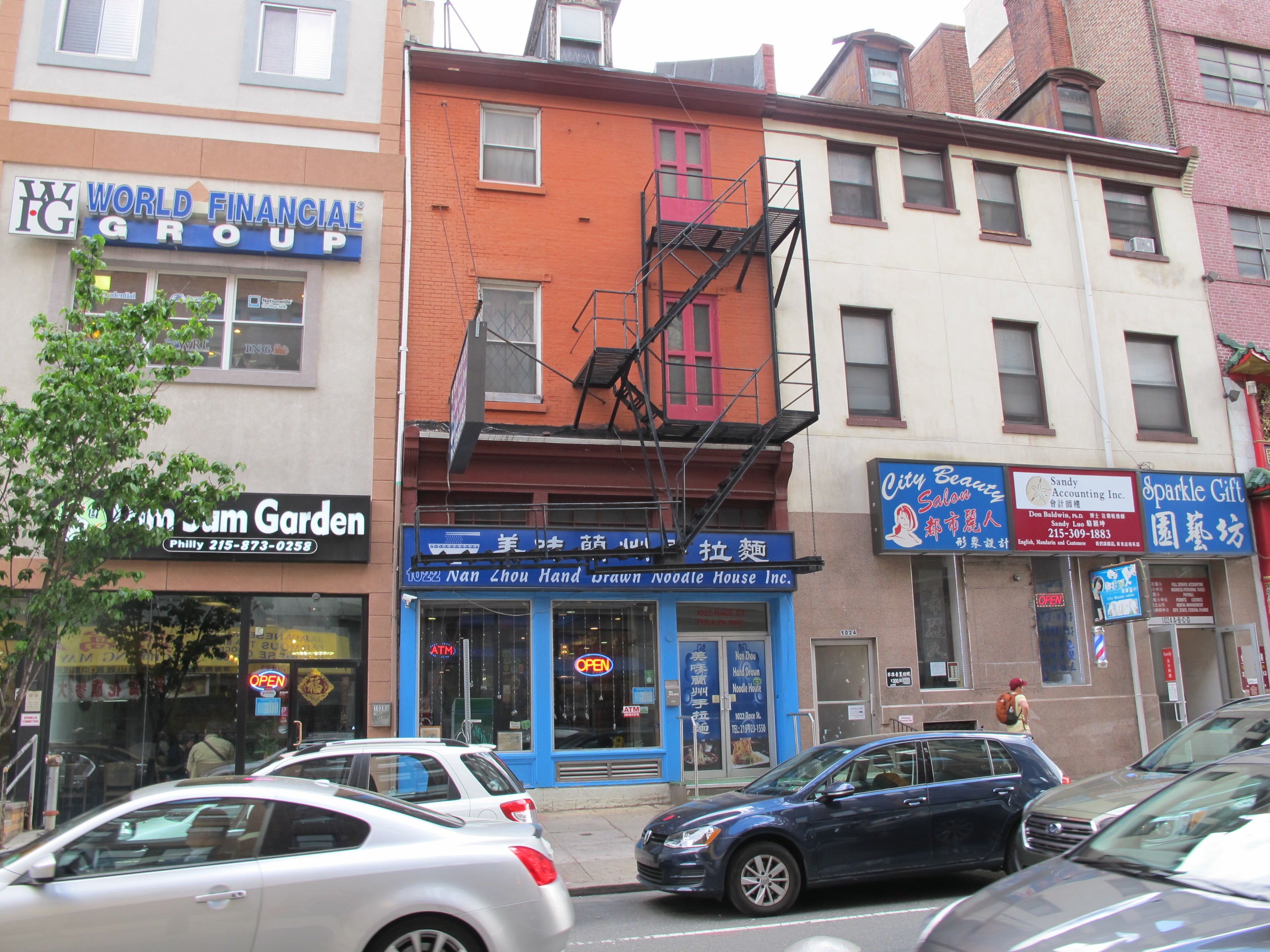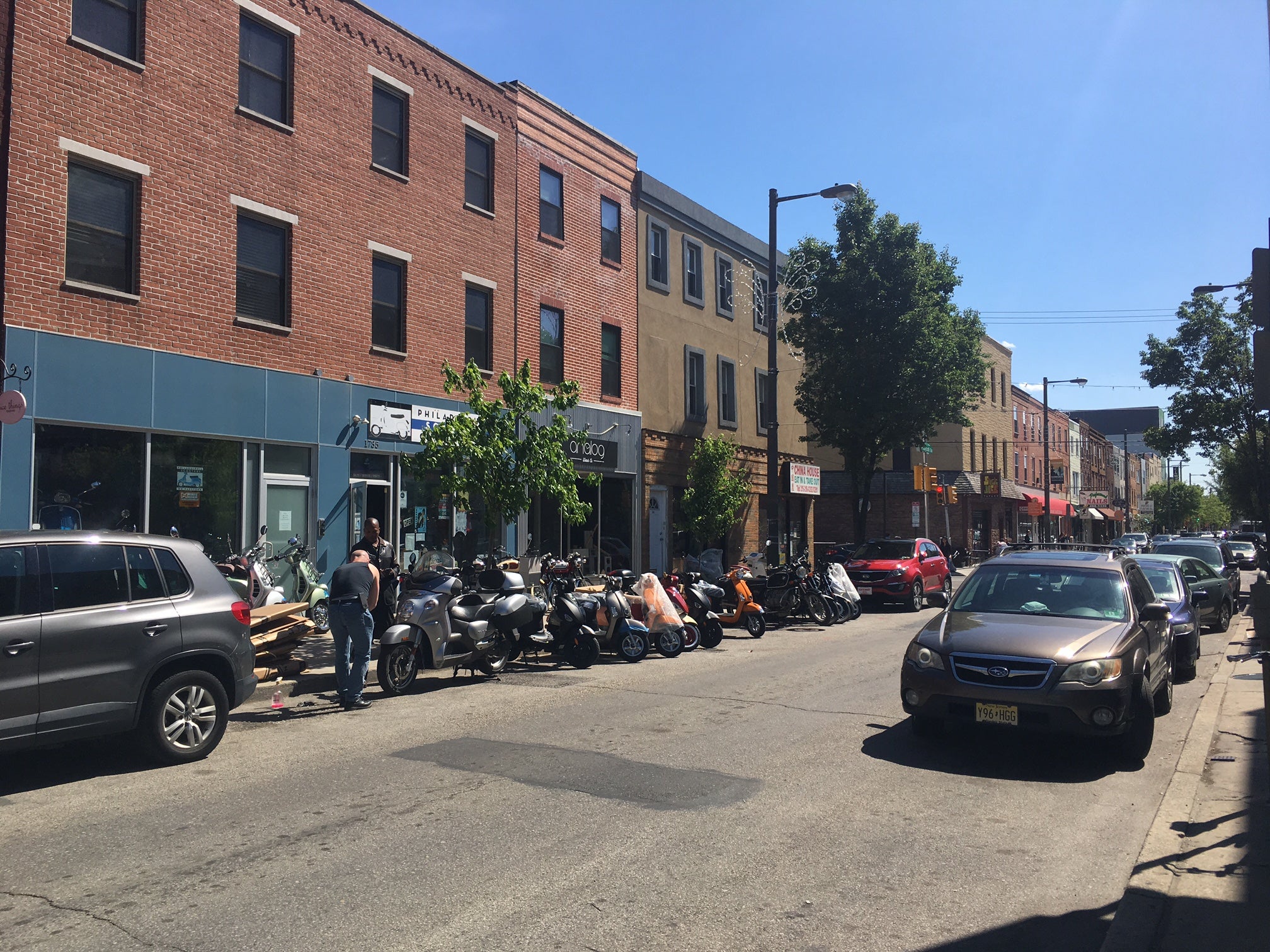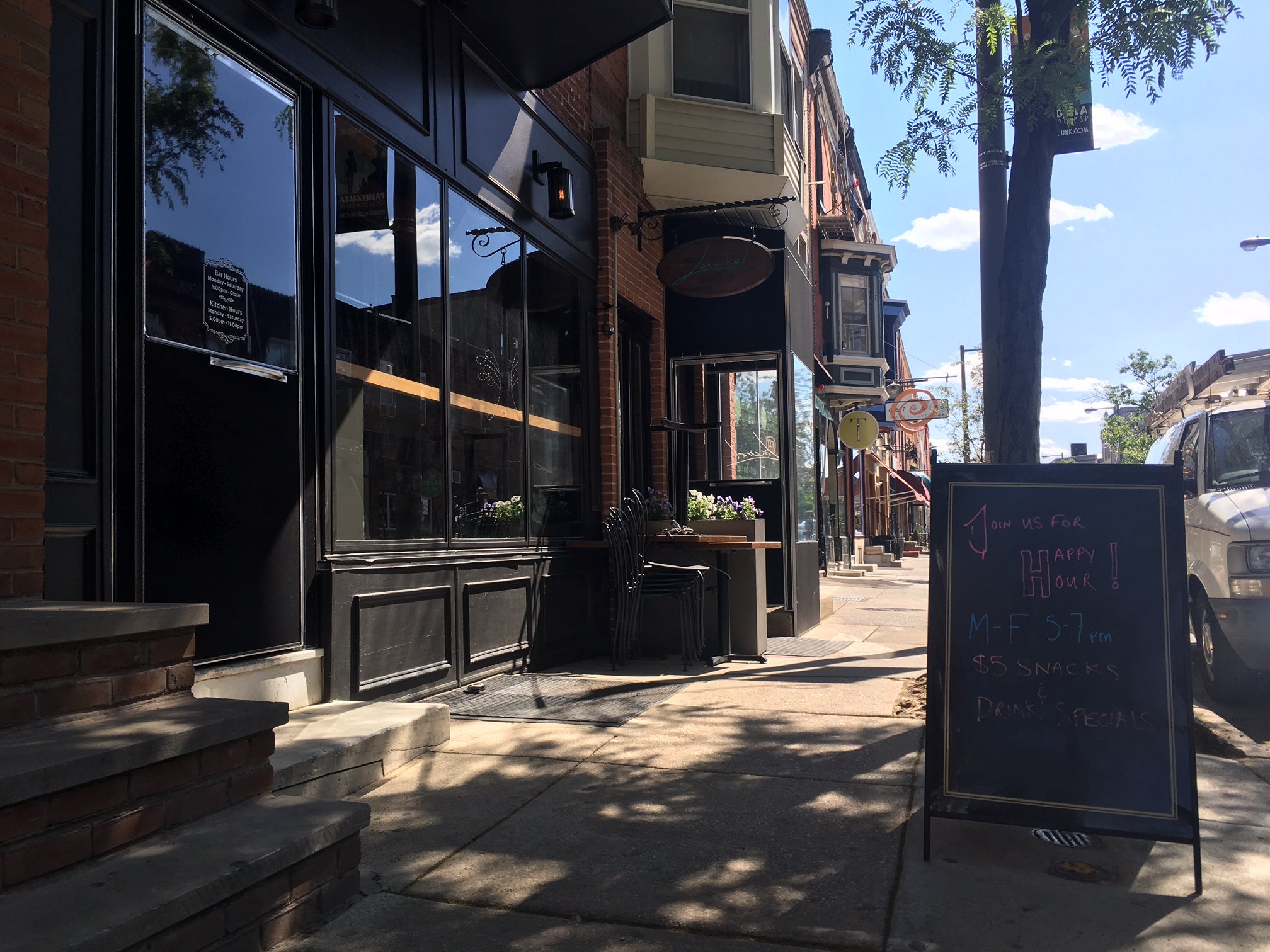Property-tax hikes stir worries in East Passyunk, Chinatown, South Street District

Ever since the 2015 campaign, Mayor Jim Kenney has said that supporting commercial corridors is key to his vision for revitalizing the city’s neighborhoods. And while it hasn’t necessarily rolled out any bold new initiatives, the Kenney administration has made good on the promise in small ways—by, for example, sending Commerce Director Harold Epps on a listening tour of neighborhood corridors and providing continued support for efforts like the Storefront Improvement Program, which partially reimburses the cost of certain improvements and repairs.
But with the release of new commercial property tax assessments for 2018, some neighborhood business owners are concerned they may not be able to afford their increased tax bills. And some advocates worry the hikes could end up destabilizing neighborhoods unless protections are created for certain small businesses.
According to Sarah Yeung, a senior project manager for the Philadelphia Chinatown Development Corporation (PCDC), nearly all commercial mixed-use property assessments in Chinatown increased year over year. Of those, according to Yeung’s analysis, the average assessment increased 49 percent between 2017 and 2018, and more than half increased by at least 30 percent.
On East Passyunk Avenue, the average commercial assessment rose 65 percent, with a number of property assessments doubling, tripling, or quadrupling. Bryan Fenstermaker, director of the Passyunk Avenue Revitalization Corporation—a group that has helped engineer the successful growth of Passyunk Avenue by picking and choosing tenants in properties it owns and offering deals on rent to some businesses—declined to discuss the tax hikes, because PARC is actually in the process of selling five of its buildings on the avenue. (He did specify, though, that the decision to unload properties was in the works before the new assessments were released.)
Concerns are bubbling up on South Street as well. Mike Harris, director of the South Street Headhouse District, said he has yet to do a full analysis of the new assessments on the corridor, but that business owners have been making some noise.
“I think what has people most concerned is the size of the increase,” Harris said. “The jump year over year. A lot of our businesses are small businesses. The retail scene is tough enough, and this really adds to the challenge. I have had some businesses approach me with legitimate questions over whether they can continue to stay open.”
On Monday, the Philadelphia Association of Community Development Corporations (PACDC) released its Commercial Corridor Policy Agenda for 2017. Included among its many recommendations is a suggestion that the city should consider measures to protect small businesses in changing neighborhoods where property taxes are rising.
Beth McConnell,* the policy director for PACDC, said she’s spoken with a number of corridor managers about the new tax assessments. In areas where taxes are rising dramatically, there are concerns about small business owners having the ability to afford the higher bills. Moreover, McConnell said, changing commercial corridors have implications for wider neighborhood affordability as well. Residents need reasonable housing costs in order to avoid being pushed out of their neighborhoods, but they also need access to affordable goods and services, McConnell said. Commercial tax hikes could threaten that access in some areas, she said.
Of course, not every neighborhood is experiencing tax increases across the board. Even on the corridors where general increases are happening, many tax bills are rising only modestly. But some are drastic.
At 1801-1803 East Passyunk Avenue, the property that’s home to Stogie Joe’s, the assessed market value went from $305,000 in 2017 to $1,678,300 in 2018, a 450 percent increase year over year, levying an extra $20,000 in annual taxes. At Marra’s, the stalwart Passyunk Avenue Italian restaurant, the assessment rose from $482,400 to $1,174,500, meaning the tax bill will be $10,000 higher next year than last year. And at three properties near the Passyunk fountain owned by PARC—Brigantessa, Black ‘N Brew, and a corner hardware store—assessments rose an average of 145 percent, with a total tax increase of more than $12,000.
Varnana Beuria, owner of Chhaya Café and treasurer of the East Passyunk Avenue Business Improvement District, said that she rents her property and doesn’t believe she’ll be responsible for the $5,000 yearly increase in taxes under the new assessments. But she is concerned the increase could make it difficult for some businesses.
“It is likely property owners will pass at least some portion of the tax increase onto tenants, and for some businesses this may be more than they can absorb and remain viable,” Beuria said in an email. “It may also make it harder for new businesses to come in as it will result in higher start-up costs and rents that may be infeasible for smaller independents (which make up much of the business mix on Passyunk Ave.) to afford.”

At 1022 Race Street, home to Nan Zhou Hand Drawn Noodle House in Chinatown, the assessment rose from $742,000 to $1,801,700 from 2017-2018. And that’s on top of a doubled assessment between 2013 and 2014. The same thing happened at 222 N. 9th Street, which increased from $239,000 to $584,500 in 2014 and then more than doubled again to $1,323,700 in 2018.
John Chin, PCDC’s executive director, said he’s encouraging every commercial property owner in Chinatown to appeal the new assessments.
Steve Giannascoli, a realtor who represents a number of property owners on South Street, said the most difficult challenge of the new assessments is that the city hikes taxes all at once, rather than incrementally ramping up over time. Getting a drastic year-over-year tax increase is like finding out that your salary is going to drop 20 percent, he said: where do you cut corners?
“The rents have gone down [on South Street], in some cases by 50 percent,” Giannascoli said. “We have vacancies because retail is very difficult. And then the city wants a big tax increase. That’s a problem.”
In some ways, the concerns mirror those that arose in the wake of former mayor Michael Nutter’s Actual Value Initiative (AVI), which entailed a citywide reassessment of residential property values for 2014. Not too surprising, considering the commercial reassessment is the unfinished business of AVI. City Councilman Mark Squilla, who represents the district that includes East Passyunk and Chinatown as well as South Street, helped lead the charge after AVI to create programs and exemptions that helped longtime homeowners deal with tax increases. At the time, Squilla, whose district was among the hardest hit by residential tax increases, called for the new assessments to be phased in over a number of years to ease the burden on homeowners. That proposal was never implemented, but Squilla says he’s now interested in identifying other measures to help small-business owners hit with big increases.
Squilla said he doesn’t have anything specific in the works yet, but that he’s talked with other Council members who are concerned about the issue as well. One option to consider, said both Squilla and McConnell, might be something akin to the Longtime Owner Occupants Program, which makes longtime homeowners eligible for a real estate discount on property taxes when assessments rise dramatically.
“We’ll see what we come up with, but we have to do something shortly because time’s running out,” Squilla said.
The city expects to bring in an additional $118 million in 2018 thanks to the reassessment of commercial properties citywide, which includes much more than just neighborhood retail. But the Kenney administration isn’t worried that the increases will stifle growth.
“The City does not anticipate that commercial property owners will be deterred from moving into the city or buying additional properties, in Center City or the neighborhoods, due to the higher property values,” Kenney spokesman Mike Dunn said in an email. “Philadelphia’s real estate taxes are still significantly lower than our surrounding suburbs. Assessed values are rising in Philadelphia precisely because we have been successful in attracting new businesses and supporting the success of those who are already here.”
Dunn also noted that on average, commercial properties that include residential dwellings—a typical characteristic of neighborhood corridors—saw much smaller increases than other types of commercial properties, like hotels and industrial properties.
Still, said Beth McConnell, for the corridors that are hardest hit, the city should consider some way of softening the blow.
“There has to be something in the range of reasonable, and that people can plan for,” McConnell said.
*NOTE: Beth McConnell is a member of PlanPhilly’s Community Advisory Board.
WHYY is your source for fact-based, in-depth journalism and information. As a nonprofit organization, we rely on financial support from readers like you. Please give today.





